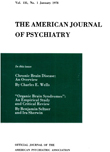Abstract
This report has dealt with an investigation of the hypothesis than infantile experiences influence the behavior of an organism throughout its life. The hypothesis was tested experimentally by studying the effects of litter size during infancy upon adult behavior in the rat. Experimental manipulation of litter size was used as a method for inducing variation in maternal care and nurture during the suckling period. One hundred and twenty newborn rats were divided into 2 groups, one group being reared in litters of 6, and the other in litters of 12. The animals in large litters were exposed to considerably greater frustration and competition in connection with maternal care and nurture than those in small litters. When the animals were adults, tests were done to determine whether the infantile experience variable had resulted in behavorial differences between the 2 experimental groups. The following results were obtained:
1. Mothers given small litters behaved significantly more maternally toward their pups than those given large ones.
2. Male animals raised in small litters weighed significantly more than males from large litters, a difference that continued far into adulthood.
3. Animals from small litters tended to eat more and to go after food more quickly when hungry than the rats raised in large litters.
4. The animals from large litters "hoarded" significantly more food in adulthood than the small litter rats.
5. The large-litter animals were more successful in competition for food during adulthood than those from small litters.
6. Animals raised in small litters reacted to novel experiences with less anxiety and more exploratory behavior in adulthood than large-litter rats.
7. The large-litter animals exhibited significantly more mating behavior toward a female in heat during adulthood than the rats from small litters.
8. The large-litter rats were more vicious, bit more, struggled and fought more when handled, and reacted with greater "startle" to new stimuli in adulthood than the animals from small litters.
9. A further control experiment with 84 other animals revealed that when adult rats lived together in groups of 6 and 12, this experience did not result in sustained behavioral differences between the 2 groups.
The results of this investigation support the hypothesis that experiences during the infancy of a mammal can influence the subsequent behavior of the organism throughout its life. The following additional hypotheses were proposed to explain the results of the present experiment:
1. The infant mammal is more susceptible to long-range effects of experiences than the adult animal.
2. There is a litter size above which additional offspring negatively reinforce maternal behavior in the mother.
3. The 3 variables of litter size, maternal behavior, and behavior of the offspring are related and influence each other as chains of interacting events. These relationships may [SEE DIAGRAM IN SOURCE PDF]be expressed diagrammatically as follows:
4. Although both overgratifying and overly frustrating infantile experiences may result in behavior "fixations," the types of "fixated" behavior resulting from such infantile experiences tend to be specific and different.

